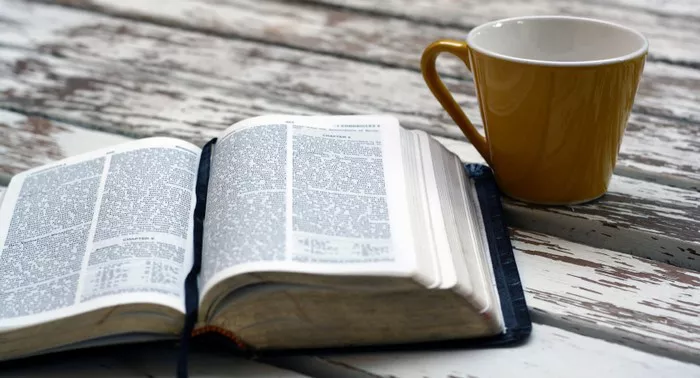Novenas hold a significant place in the spiritual practices of the Catholic Church, offering believers a structured way to deepen their devotion, seek intercession, and grow closer to God. Rooted in centuries of tradition and faith, novenas provide a means for Catholics to express their intentions through prayer and reflection. In this article, we delve into the origins, significance, and practices surrounding novenas, uncovering their rich tapestry within the Catholic faith.
Understanding the Origin of Novenas
The term “novena” originates from the Latin word “novem,” meaning nine. In the Catholic context, a novena refers to a nine-day period of prayer and meditation, often centered around a particular intention or devotion. The roots of novenas trace back to biblical times, specifically to the nine days of prayer observed by the Apostles and Mary between the Ascension of Jesus and the descent of the Holy Spirit at Pentecost.
The earliest recorded novena in Christian history is the nine days of prayer observed by the disciples, following the Ascension of Jesus. Acts 1:14 recounts, “They all joined together constantly in prayer, along with the women and Mary the mother of Jesus, and with his brothers.” This foundational novena set the precedent for the practice within the early Christian community.
Significance of Nine Days
The choice of a nine-day period holds both biblical and symbolic significance within Catholic tradition. Biblically, the number nine is often associated with waiting, anticipation, and preparation. It reflects the time between Christ’s Ascension and the arrival of the Holy Spirit at Pentecost, during which the disciples devoted themselves to prayer and supplication.
Symbolically, the number nine is seen as a reflection of the nine months that Mary carried Jesus in her womb, emphasizing a connection to the Incarnation and the maternal intercession of the Blessed Virgin. Additionally, nine days are considered sufficient time for earnest prayer and reflection, allowing believers to immerse themselves fully in their intentions while demonstrating persistence and commitment.
Types of Novenas
Novenas can take various forms, each tailored to different devotions, saints, or specific intentions. Some of the most common types of novenas include:
Devotional Novenas: These novenas focus on devotion to a particular aspect of Catholic faith, such as the Sacred Heart of Jesus, the Divine Mercy, or the Immaculate Heart of Mary. Devotional novenas often involve specific prayers, reflections, and devotional practices associated with the chosen theme.
Intercessory Novenas: Intercessory novenas are dedicated to seeking the intercession of a specific saint or holy figure for a particular intention or need. Believers may invoke the aid of saints known for their patronage over certain causes, such as Saint Anthony for lost items or Saint Jude for desperate situations.
Seasonal Novenas: Some novenas are tied to specific liturgical seasons or feast days within the Catholic calendar. For example, novenas leading up to Christmas (Advent) or Easter (Lent) offer a focused period of preparation and spiritual reflection in anticipation of these significant celebrations.
Personal Novenas: Individuals may also undertake personal novenas to address specific concerns, seek guidance, or offer thanksgiving for answered prayers. These novenas are tailored to the individual’s unique intentions and may involve private prayers, scripture readings, and acts of penance.
Practices and Traditions
While the specifics of novena practices may vary depending on the intention or devotion, there are common elements that characterize these periods of prayer and reflection:
Daily Prayers: A key component of novenas is the daily recitation of prayers or devotions over the course of nine consecutive days. These prayers may include traditional prayers such as the Rosary, the Chaplet of Divine Mercy, or specific prayers associated with the chosen devotion or saint.
Scripture Readings: Many novenas incorporate readings from the Bible, providing spiritual nourishment and guidance throughout the nine-day period. These readings often relate to the theme or intention of the novena, offering insights and reflections for deeper contemplation.
Fasting and Penance: Some individuals choose to accompany their prayers with acts of fasting or penance as a way of expressing contrition, discipline, or solidarity with those in need. This may involve abstaining from certain foods, practicing acts of charity, or making personal sacrifices during the novena.
Community Participation: While novenas can be undertaken individually, they are often practiced within the context of a faith community or parish. Group novenas provide opportunities for communal prayer, mutual support, and shared spiritual growth, fostering a sense of unity and solidarity among believers.
The Power of Novenas in Catholic Spirituality
Novenas hold a special place in Catholic spirituality, offering believers a structured and profound way to engage in prayer, reflection, and devotion. Through the discipline of nine days of focused prayer, Catholics can deepen their relationship with God, seek intercession from saints, and entrust their intentions to divine providence.
One of the key aspects of novenas is their emphasis on persistence and trust in God’s timing and providence. By committing to daily prayer over a period of nine days, believers demonstrate their faith and perseverance, confident that God hears their prayers and will respond according to His will.
Moreover, novenas serve as a tangible expression of the Catholic belief in the communion of saints, affirming the interconnectedness of the faithful on earth with the saints in heaven. By invoking the intercession of holy figures who have gone before us, Catholics acknowledge their belief in the power of prayer and the communion of saints to bring about spiritual blessings and graces.
Conclusion
In conclusion, novenas stand as a cherished tradition within the Catholic Church, offering believers a sacred space for prayer, reflection, and spiritual growth. Whether undertaken individually or as part of a faith community, novenas provide a pathway to deeper intimacy with God, fostering faith, hope, and perseverance in the journey of discipleship. As Catholics continue to draw upon this rich spiritual practice, may they be inspired to seek God’s presence and grace in all aspects of their lives.

